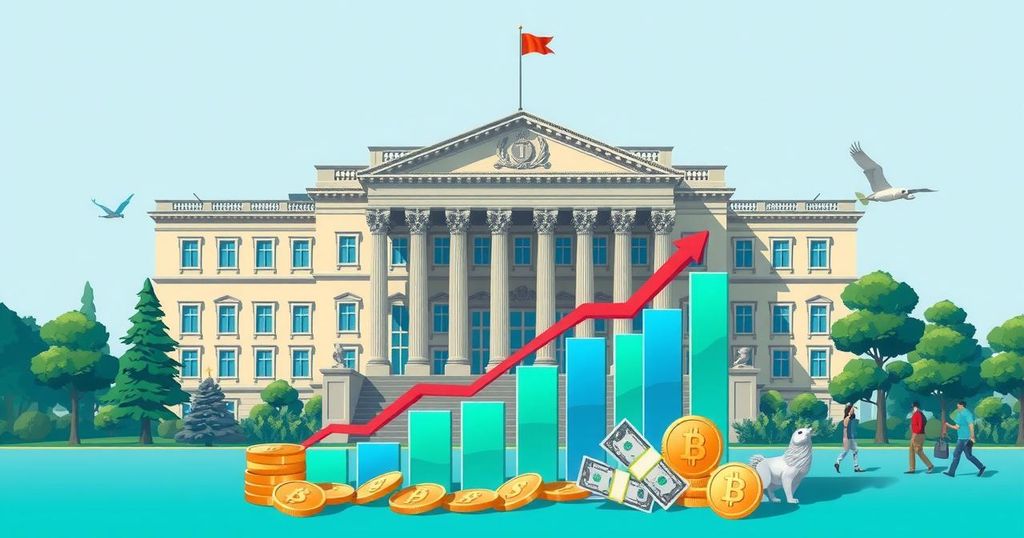Ghana is receiving $1.32 billion from the IMF and World Bank to address 35% of its 2025 budget deficit. This includes $720 million from the IMF’s Extended Credit Facility and $600 million from the World Bank’s Development Policy Operation. The government plans to meet the remaining deficit through domestic borrowing, focusing on fiscal discipline and sustainable debt management.
The Minister of Finance, Dr. Cassiel Ato Forson, announced that Ghana is set to receive $1.32 billion in financial assistance from the International Monetary Fund (IMF) and the World Bank, aimed at addressing 35 percent of the nation’s budget deficit for 2025. This support comprises $720 million from the IMF’s Extended Credit Facility (ECF) and $600 million from the World Bank’s Development Policy Operation (DPO).
Dr. Forson explained that the total cash deficit is projected at GH¢56.9 billion, which will be financed through both foreign and domestic sources. Total foreign net financing is estimated at GH¢21.4 billion or 1.5% of GDP, reinforcing the role of both the IMF and the World Bank in providing critical support.
To address the remaining 65%, which amounts to GH¢36.9 billion (2.6% of GDP), the government plans to leverage domestic borrowing, primarily through the issuance of short-term treasury bills. The IMF-ECF program is part of a broader strategy to restore Ghana’s macroeconomic stability, while the DPO focuses on facilitating necessary policy reforms and recovery efforts.
The Minister affirmed the government’s commitment to fiscal discipline and sustainable debt management, emphasizing the efficient utilization of these funds for the country’s economic stability.
In summary, Ghana’s receipt of $1.32 billion from the IMF and World Bank represents a significant step toward addressing a substantial budget deficit. The assistance will play a vital role in restoring economic stability and promoting necessary fiscal reforms. The government’s strategy to utilize domestic borrowing further complements this external support, demonstrating a comprehensive approach to fiscal management.
Original Source: www.ghanaweb.com






